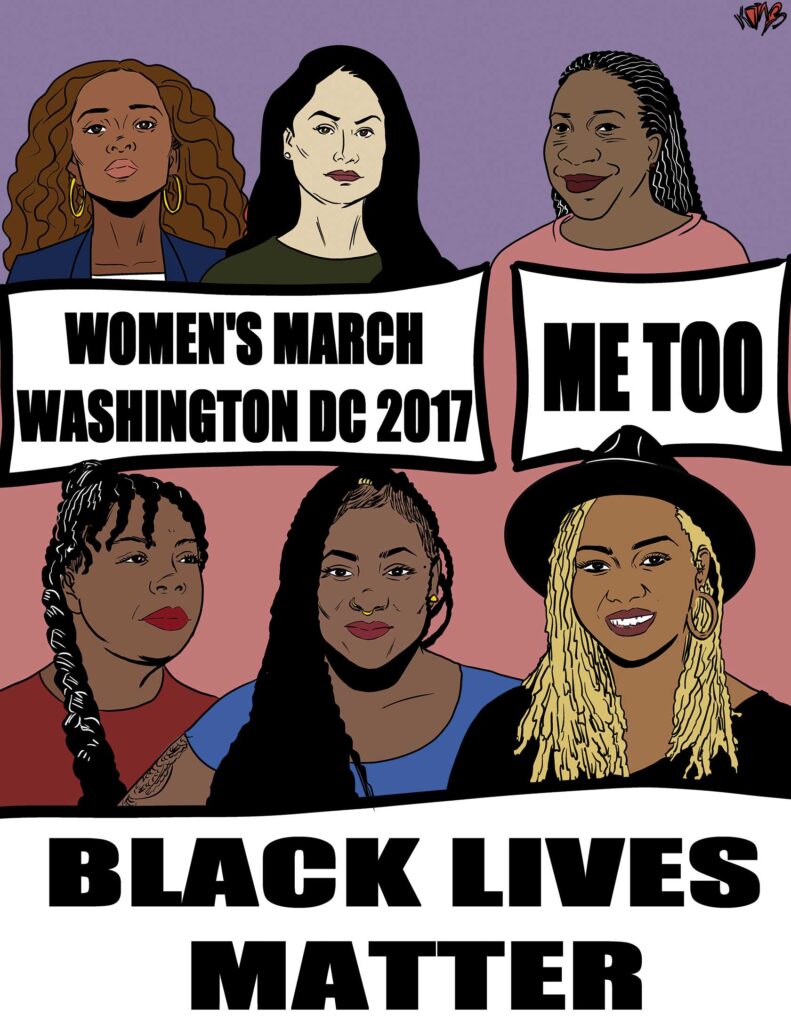
Women’s History Month and International Women’s Day celebrate achievements and raise awareness to inspire change. Gender bias and discrimination are rampant in societies around the world, whether it’s gender inequality, unequal pay for equal work, attacks on reproductive rights, or violence against and abuse of women.
While it is important to celebrate women’s place in history and all the contributions they have made in the past, it is also important to understand the national observance has activist roots. This month of celebration began as National Women’s Day. The first came on February 28, 1909, when 15,000 women marched through New York City demanding shorter work hours, better pay and voting rights.
For Women’s History Month this March, as ever, nothing is more important than the protection and advancement of women’s rights. A core issue of our age, which intersects with all those other issues mentioned, is a woman’s right to control her body and destiny.
The U.S. Supreme Court, in the Dobbs v. Jackson Women’s Health Organization (2022), overturned Roe v. Wade (1973), which guaranteed a constitutional right to abortion. The ruling effectively took away women’s individual autonomy and privacy. Women are no longer legally in control of their bodies.
The kind of support women need from male allies is not more misdirected macho outbursts like the one from Will Smith, slapping Chris Rock at the Oscars last year. It is standing up for women’s autonomy as humans by expressing outrage at the Supreme Court ruling forcing women back into second-class citizenship. Isn’t that more of a slap in our face?
Around the same time the Dobbs decision was issued, in Iran, Mahsa Amini’s death occurred in police custody after she refused to cover her hair. Her death sparked nationwide protests of a size and scale that were not matched on the streets in this country over a women’s right to choose what she does with her body. Iranian protesters chanted “Women. Life. Freedom!” We should follow their example and not stop protesting until the Supreme Court restores the Roe precedent or Congress takes action, however long that takes.
One factor behind the difference in reaction may be that in Iran, all women are affected evenly by Sharia law, while traditionally in this country, privilege dictated a women’s ability to have autonomy over her own body and make her own tough choice about whether to have an abortion. In the past, the justification for denying women abortions was the false claim that they were personally irresponsible. Today, it’s all about states’ rights. This must not stand.
All women and men — whether Black, white, rich, poor or immigrant — must stand together and fight for women’s rights. As Coretta Scott King said, “Struggle is a never ending process. Freedom is never really won, you earn it and win it in every generation.”
So far this century, women of color have been behind the largest social movements in this country. Patrisse Cullors, Alicia Garza and Opal Tometi founded Black Lives Matter. Tarana Burke coined “MeToo,” touching off renewed activism against sexual abuse of women. Tamika Mallory and Carmen Perez co-chaired the Women’s March in Washington the day after Donald Trump was inaugurated as president in 2017.
Other women of color have made a notable difference in national politics. Vice President Kamala Harris became the highest-ranking woman ever in the federal government. Stacey Abrams mobilized black voters in Georgia to flip control of the U.S. Senate. Alexandria Ocasio-Cortez animated the left wing of Democratic Party and Michelle Obama inspired Americans of all ages and races as first lady.
In the world of news media and entertainment, the late Gwen Ifill co-anchored newscasts on public television, and filmmaker Ana DuVernay made the powerful documentary “When They See Us” on the Central Park Five. Shonda Rhimes, who has produced many popular network television series, put Black women in powerful starring roles as characters in control of their life and at the top their game. These programs not only focused on women of color in front of the camera, but also provided opportunities for them to direct the show from behind the camera as well.
It is best to remember that the long fight for women’s rights, like the one for civil rights, was waged at great costs to the women and men who fought for them. No rights were ever given freely, everything was fought for, and the struggle to maintain and expand those rights is constant.
We at the Banner take these words to heart and we will always keep you informed so that you can act.
Pioneering investigative journalist Ida B. Wells said it best: “The people must know before they can act, and there is no educator to compare with the press.”







